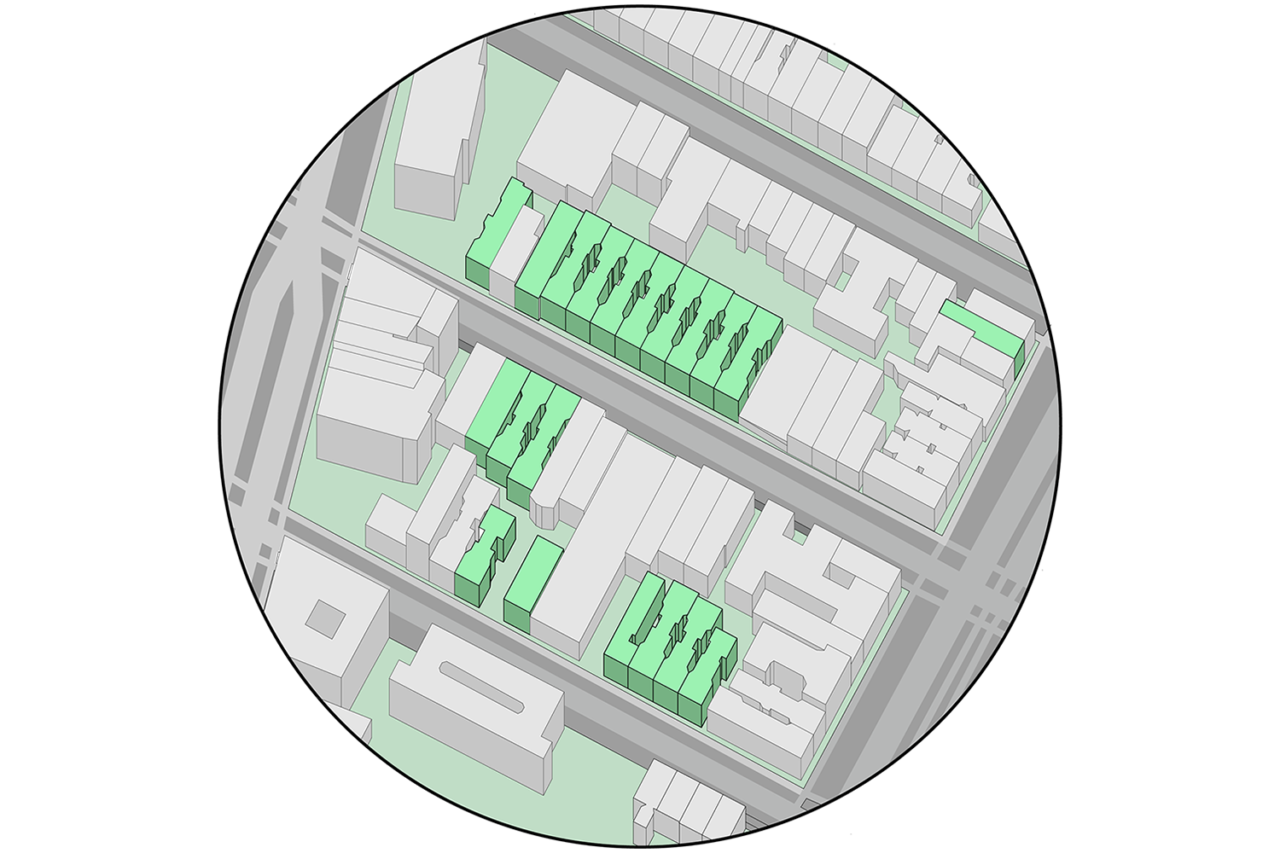by: Alicia French and Philip Poon
Gentrification and displacement are complex and contentious issues in New York City, and the architectural profession occupies a complicated position in relation to these issues due to its relationship to real estate developers and capitalism at large. The AIANY Civic Leadership Program’s second development session explored how communities have sought to empower themselves in the face of these pressures through neighborhood-scale community plans and building-scale shared equity housing models. More specifically, the session also explored the importance of rezoning to protect at-risk communities from displacement and the feasibility of community land trusts in New York City, while examining the role and agency of architects with regards to these efforts.
Organized and led by 2021 CLP members Alicia French and Philip Poon, the session was divided into two parts. Part one explored two community plans: the Chinatown Working Group Plan and the Bushwick Community Plan. Architects, designers, policy experts, and community members who contributed to these plans were invited to speak on their plans, the policy recommendations within them, and the role of architects in advocating for their passage.
In order of appearance:
- Jimena Veloz, Senior Project Manager, Hester Street
- Samuel Stein, Housing Policy Analyst, Community Service Society
- Rob Hollander, Secretary, Chinatown Working Group
- Isella Ramirez, Director of Community Engagement & Capacity Building, Hester Street
- Violette de la Selle and Michael Robinson Cohen, Founders, Citygroup
The session began with Jimena Veloz of Hester Street presenting her community work for the Two Bridges rezoning efforts, a portion of the Chinatown Working Group Plan. Samuel Stein then spoke about the role of zoning in New York City planning at large, as well as the limits and pitfalls of the overreliance on zoning as a tool for neighborhood change. Rob Hollander summarized the history of the Chinatown Working Group since its formation in 2008 in response to the city’s East Village Rezoning, and spoke to the current barriers to passage that the community plan is facing. Later, Isella Ramirez spoke about her work on the Bushwick Community Plan. Lastly, Violette de la Selle and Michael Robinson Cohen presented their work with Citygroup, a collective of architects and artists. They discussed Citygroup’s theoretical framework, which reverses the standard approach of having the public try to inform the design process. Rather, self-initiated projects like renderings that visualize the impacts of rezoning on community plans engage through the design process itself.
The second part of the session focused on community land trusts, a non-market affordable housing solution that promotes community empowerment and democratic participation. In order of appearance:
- Deyanira Del Río, Co-Director, New Economy Project
- Stephen Erdman, Director of Community Land Trust Initiatives and Analytics, NYC Department of Housing Preservation and Development (HPD) and NYC Housing Development Corporation (HDC)
- Debra Ack, Secretary, East New York Community Land Trust
- Boris Santos, Treasurer, East New York Community Land Trust
- David Lynn, Co-Founder & CEO, Mission Driven Finance
- John Krinsky, Board Member, New York City Community Land Initiative
Both Deyanira Del Río and Stephen Erdman spoke about the overall state of community land trusts in New York City today, highlighting successful local iterations of the movement. Boris Santos and Debra Ack spoke about their work at East New York Community Land Trust and laid out their plans for the future: mainly, developing “the Hole” on the Queens-Brooklyn border, an area with longstanding health and safety problems, into deeply affordable housing under the community land trust structure. Finally, David Lynn spoke about potential financing structures for community land trusts and similar affordable housing ventures.
The final part of the session was dedicated to playing an online version of Trustville, a Monopoly-style board game that helps illustrate the types of decisions communities make within community land trusts. John Krinsky of the New York City Community Land Initiative led the game and guided participants through the decision-making process. Members of the cohort were assigned characters and made cooperative decisions with other members of the speculative land trust in order to benefit the community as a whole.








